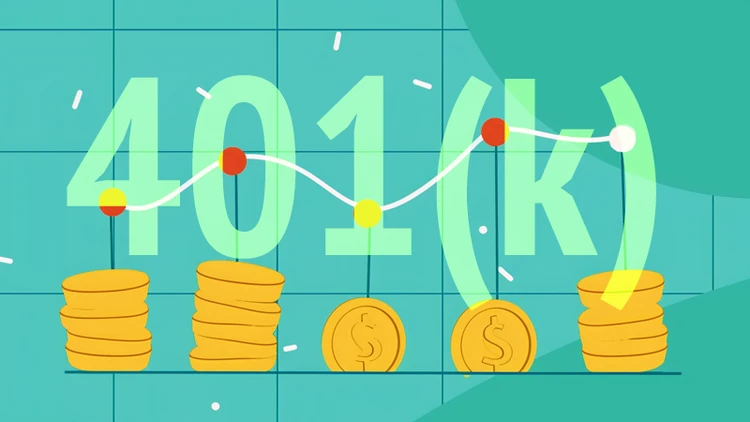Here are some easy ways to plan for the future

If youve ever asked yourself why the money game has to be so darn complicated, youre not alone.
In addition to recent revelations that millennials arent in sync with estate planning and questions about the pluses and minuses of bond yields and CD rates, a new survey of 2,000 Americans reveals that 43% of us have no clue what a 401(k) is and 70% saying they had no shot of winning a game of personal finance trivia.
The study, commissioned by Beyond Finance for Financial Practice Week and conducted by OnePoll, found that four in 10 Americans (39%) are guilty of procrastinating when implementing healthy financial habits. Gen Z are most likely to procrastinate (49%) while baby boomers are least likely to procrastinate (22%).
The top reasons respondents cited for postponing personal finance tasks include stress (25%), feeling their financial health is already poor and cant get any worse (16%) and forgetfulness (13%).
Unfortunately, avoiding looking at your finances and making healthy changes is incredibly common, said Dr. Erika Rasure, chief financial wellness advisor of Beyond Finance.
"Some people tend to neglect taking stock of their financial situation, and others can become nervously consumed by it. Theres a middle ground to take when improving your financial health learn healthy money habits, pay attention and make small, achievable adjustments to your spending and habits.
So what isa 401(k)?
An employer-sponsored 401(k) is a retirement savings plan that offers significant tax benefits. As a result of these tax benefits, you are limited in how much you can contribute. The annual contribution limit for 2024 is $23,000 for those under 50. The limit is $30,500 for those over 50.
In her breakdown of how 401(k)s work, ConsumerAffairs financial writer Cassidy Horton explains that the best place to start a 401(k) is when you start working at a new company.
You typically decide what portion of your income you want to put into your 401(k)," she said."These contributions are taken directly from your paycheck and invested on your behalf, so you dont need to do it yourself. Depending on the type of 401(k) you choose, youll either receive tax benefits when you deposit the money or when you withdraw it.
That last part tax benefits probably got your attention. But, as Horton explains, the type of 401(k) you choose a traditional or Roth needs to be considered and not just drawing a name out of a hat.
The traditional 401(k) works by deducting a percentage of your salary before taxes and depositing it into the account before taxes. The upside with that option is that your taxable income will be lower and you'll be able to save for retirement.
Say you make $50,000 a year and you contribute 3% of your income to a traditional 401(k). Since $1,500 is taken out of your salary and put into a 401(k), youll be taxed only on $48,500, which can help lower your tax bill, Horton said.
The money in your traditional 401(k) grows tax-deferred. This means the IRS wont tax your contributions or growth until you begin payouts in retirement. Even then, youll pay taxes only on the money you withdraw.
And the Roth 401(k)s? Theyre similar to traditional 401(k)s but with a couple of caveats.
Similar to a traditional 401(k), as long as the money remains in your account, you dont pay taxes on the investment growth. When you begin taking distributions after retirement, theyre tax-free since youve already paid the tax upfront, Horton advises, but cautions consumers to pay attention to what type of Roth you sign up for.
Unlike Roth IRAs (which are different from Roth 401(k)s), there are no income limits on a Roth 401(k). So, you can contribute even if youre a high earner.But the downside is that not all employers offer this kind of account.
If youre young and know youll likely be in a higher tax bracket come retirement, it may be smart to use a Roth 401(k) and pay those taxes upfront. But if your employer offers a great matching program, it may make more sense to invest your money in a traditional 401(k) so you defer taxes on that money until retirement.
401(k): Scam-prone or scam-free?
At the moment, ConsumerAffairs isnt aware of any current 401(k) scams, but the possibilities always exist as scammers try tomilk every possible investment fraud angle they can. And a 401(k) scam is likely in the works already.
Over the past year, investment fraud was again the costliest type of crime tracked by the FBIs Internet Complaint Center (IC3). Losses to investment scams rose nearly 40% from $3.31 billion in 2022 to $4.57 billion. The most vulnerable of those are consumers 30-49 years old.
Just so you know what to expect if a 401(k) scam is unleashed, some common 401(k) scams and risks you need to be aware of include:
Phishing attacks: Scammers will pose as a 401(k) provider or the HR department where you work (or did work). Their usual tactic is sending emails or texts designed to trick you into giving up your login credentials. If they gain your confidence, then theyll try and steal funds or personal data.
Unauthorized distributions: In this trickery, fraudsters hack into your account and initiate unauthorized withdrawals or transfers of funds. This often goes unnoticed for a while, but if you have account alerts set up with your investment company, you might be able to monitor those changes more closely.
Beware of doubtful investment schemes: When it comes down to how much youll gain from a 401(k), many retirement advisers say that its typical for a 401(k) portfolio to produce an average annual return of 5% to 8%. If someone comes knocking, pitching you on an investment within your 401(k) that will produce more than that, it could be a scam, so be careful.
Photo Credit: Consumer Affairs News Department Images
Posted: 2024-04-17 11:35:03




















